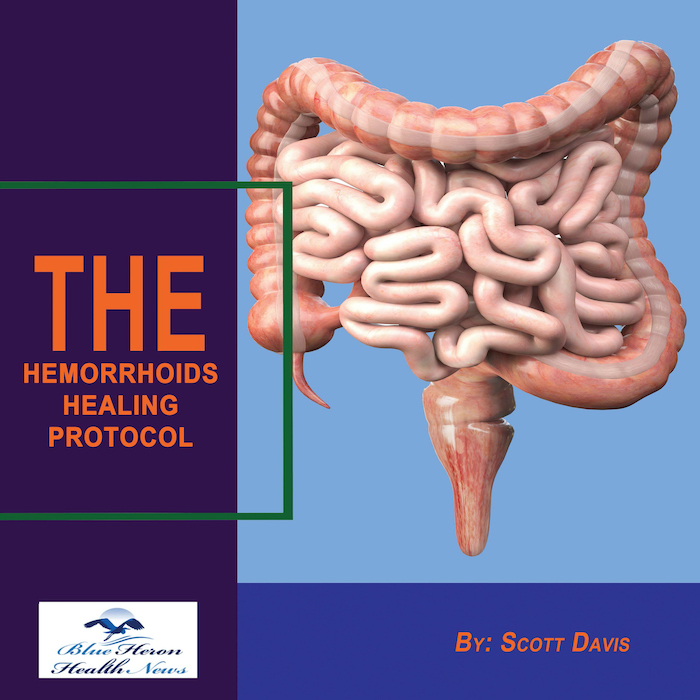
The Hemorrhoids Healing Protocol™ By Scott Davis Hemorrhoid healing protocol is a three-week online program that helps in treating and reducing hemorrhoids. It teaches gentle recipes and movements, natural and effective remedies that help in treating hemorrhoids.This program is not like the usual prescription medicines, it is a hell of a lot more than just those drugs. It focuses more on elevating the two main not so good habits that are connected to the Hemorrhoids. Overall the sole motive of this program is to remove the problem from its root instead of just treating the symptoms.
How can one prepare for hemorrhoid surgery?
Preparing for hemorrhoid surgery involves several steps to ensure the procedure goes smoothly and to promote a faster recovery. Proper preparation can help minimize complications and make the postoperative period more manageable. Here’s a guide to help you prepare for hemorrhoidectomy:
1. Consultation and Pre-Surgical Evaluation
- Medical history review: Your doctor will review your medical history, current medications, and any existing health conditions. Be sure to mention any allergies, bleeding disorders, or previous surgeries.
- Medication review: Inform your doctor about all medications and supplements you are taking, including over-the-counter drugs. Some medications, especially blood thinners (e.g., aspirin, warfarin), anti-inflammatory drugs (e.g., ibuprofen, naproxen), and certain herbal supplements, may need to be temporarily stopped before surgery to reduce the risk of excessive bleeding.
- Preoperative tests: Depending on your age and overall health, your doctor may recommend certain blood tests, urine tests, or an electrocardiogram (ECG) to ensure you are fit for surgery.
2. Dietary Adjustments
- High-fiber diet: In the weeks leading up to surgery, it is helpful to follow a high-fiber diet to soften stools and prevent constipation, which can cause straining and worsen hemorrhoids. Fiber-rich foods include fruits, vegetables, whole grains, and legumes.
- Hydration: Drink plenty of water (at least 8 glasses a day) to help keep stools soft and reduce the risk of constipation.
- Preoperative fasting: Your doctor will advise you not to eat or drink anything for a specific period before surgery (usually 6-8 hours if you are having general anesthesia). Follow these instructions carefully to avoid complications during anesthesia.
3. Bowel Preparation
- Enema or laxative: Some surgeons recommend using an enema or laxative the day before surgery to clear the bowels. This helps ensure a clean surgical area and reduces the risk of infection. Follow your doctor’s instructions on bowel preparation closely.
- Stool softeners: In the days leading up to surgery, your doctor may recommend a stool softener (e.g., docusate sodium) to make bowel movements easier post-surgery.
4. Medication Adjustments
- Discontinue certain medications: You may be instructed to stop taking blood thinners, non-steroidal anti-inflammatory drugs (NSAIDs), and other medications that increase the risk of bleeding at least a few days before surgery.
- Continue necessary medications: If you have certain conditions (e.g., high blood pressure or diabetes), your doctor will provide guidance on which medications to continue taking and how to adjust them before surgery.
- Antibiotics: In some cases, your doctor may prescribe antibiotics before surgery to reduce the risk of infection.
5. Prepare for Postoperative Recovery
- Pain relief: Ask your doctor about pain management options after surgery. You may be prescribed pain medications, and it’s a good idea to have them ready at home for when you return from the hospital.
- Arrange for transportation: If you will be under general or spinal anesthesia, you will not be able to drive yourself home after surgery. Arrange for a family member or friend to take you to and from the hospital or surgical center.
- Plan for rest and recovery: Plan to take at least 1 to 2 weeks off from work or regular activities to rest and recover after surgery. Prepare your home with items that can help ease your recovery, such as:
- Sitz bath: A sitz bath is a shallow basin you can sit in to soak the anal area in warm water. It can help reduce pain, swelling, and inflammation after surgery.
- Ice packs: Have ice packs ready to reduce swelling and discomfort in the first few days post-surgery.
- Comfortable seating: Prepare soft pillows or cushions to sit on, as sitting may be uncomfortable after hemorrhoidectomy.
- Loose clothing: Have loose, comfortable clothing ready to avoid pressure on the surgical area.
6. Lifestyle Adjustments
- Avoid alcohol and smoking: Refrain from drinking alcohol and smoking in the days leading up to surgery. Smoking can interfere with healing and increase the risk of complications.
- Physical activity: Engage in light physical activity, like walking, leading up to surgery, but avoid heavy lifting or strenuous exercise. Staying active can help improve circulation and promote better healing after surgery.
7. Mental Preparation
- Understand the procedure: Educate yourself about what to expect during and after the surgery. Knowing the steps of the procedure and potential side effects can help reduce anxiety and prepare you for recovery.
- Ask questions: If you have any concerns or questions about the surgery, recovery process, or possible complications, discuss them with your surgeon ahead of time. Knowing what to expect can alleviate stress.
8. Day of Surgery
- Shower and hygiene: On the day of the surgery, take a shower or bath and clean the area around your anus thoroughly, as this will reduce the risk of infection.
- Wear loose, comfortable clothing: On the day of surgery, wear loose clothing to avoid putting pressure on the surgical area.
- Follow fasting instructions: Make sure to follow the fasting guidelines provided by your doctor, typically no food or drink for 6-8 hours before surgery.
- Bring necessary items: If you’re staying at the hospital for observation (usually only for a short period after the procedure), bring essentials like identification, insurance information, and comfortable clothing for the ride home.
Post-Surgery Preparation:
- Prepare for bowel movements: Bowel movements after surgery can be uncomfortable, so it’s important to take stool softeners as prescribed and drink plenty of water. This will help avoid straining and promote smooth, painless bowel movements.
- Pain management: Ensure you have over-the-counter or prescribed pain medications on hand. Taking these as directed can help control post-surgical pain.
- Avoid constipation triggers: Prevent constipation post-surgery by continuing to eat high-fiber foods, staying hydrated, and avoiding foods that can harden stools (e.g., processed foods, dairy in large quantities).
In Summary
Preparing for hemorrhoid surgery involves dietary and medication adjustments, mental and physical preparation, and ensuring you have the resources needed for a comfortable recovery at home. By closely following your doctor’s instructions, arranging for assistance, and preparing your home and yourself for postoperative care, you can help ensure a smoother surgery and recovery experience.
The Hemorrhoids Healing Protocol™ By Scott Davis Hemorrhoid healing protocol is a three-week online program that helps in treating and reducing hemorrhoids. It teaches gentle recipes and movements, natural and effective remedies that help in treating hemorrhoids.This program is not like the usual prescription medicines, it is a hell of a lot more than just those drugs. It focuses more on elevating the two main not so good habits that are connected to the Hemorrhoids. Overall the sole motive of this program is to remove the problem from its root instead of just treating the symptoms.
